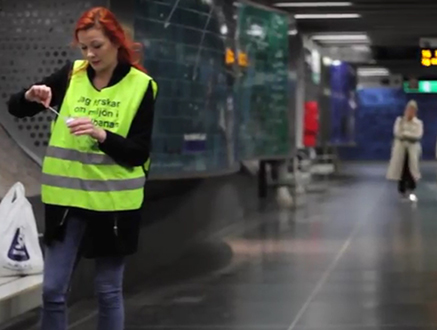
June 13, 2017
In July, Stockholm will host the 3rd Metagenomics and Metadesign of Subways and Urban Biomes (MetaSUB) Annual Conference, which will bring together researchers dedicated to mapping the urban metagenome of more than 67 cities worldwide.
This ambitious project began two years ago, when Professor Christopher Mason and his team, created the first surface-based, city-scale, microbiome and metagenome study for New York City. With the DNA data, the project studied how this ‘urban microbiome’ changes with variables such as weather, cleanliness, construction materials and even neighborhood socio-economic levels. The team sought to establish baseline profiles across the subway system, identify potential bio-threats, and provide an additional level of data that can be used by the city to create a “smart city;” i.e., one that uses data to improve city planning, management, and human health. Notably, nearly half (48%) of the DNA sequenced did not match known organisms, underscoring the vast microbiota that surround passengers every day.
The NYC subway project was just the beginning, leading to the creation of an international consortium of laboratories to establish a worldwide “DNA map” of microbiomes in mass transit systems and Illumina is an industrial partner in the project.
We caught up with Klas Udekwu from the University of Stockholm, who is leading efforts in Sweden to discover how Illumina’s next-generation sequencing is enabling this research, and hear how he has ambitions to broaden the scope of the project to Nigeria, in Africa.


